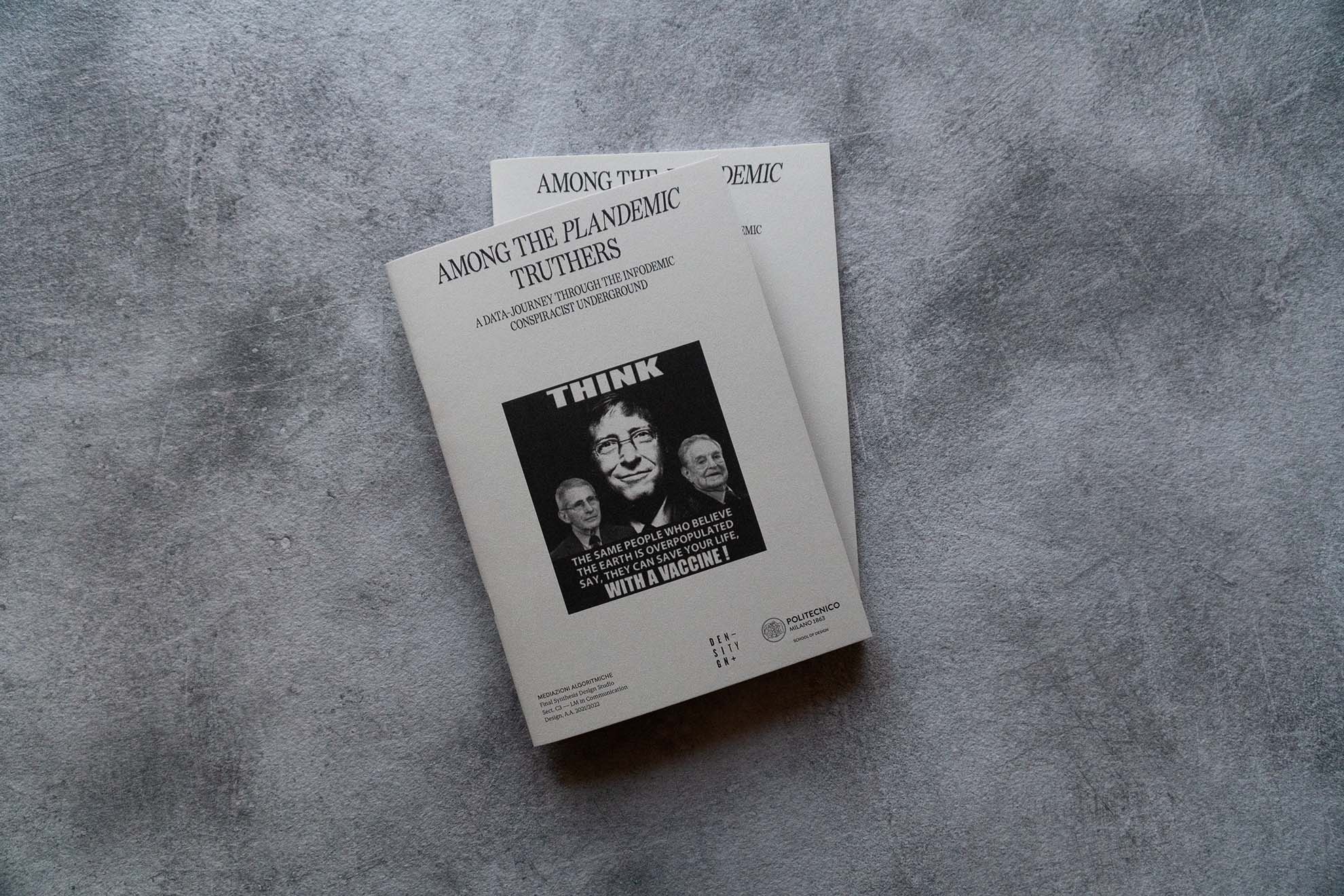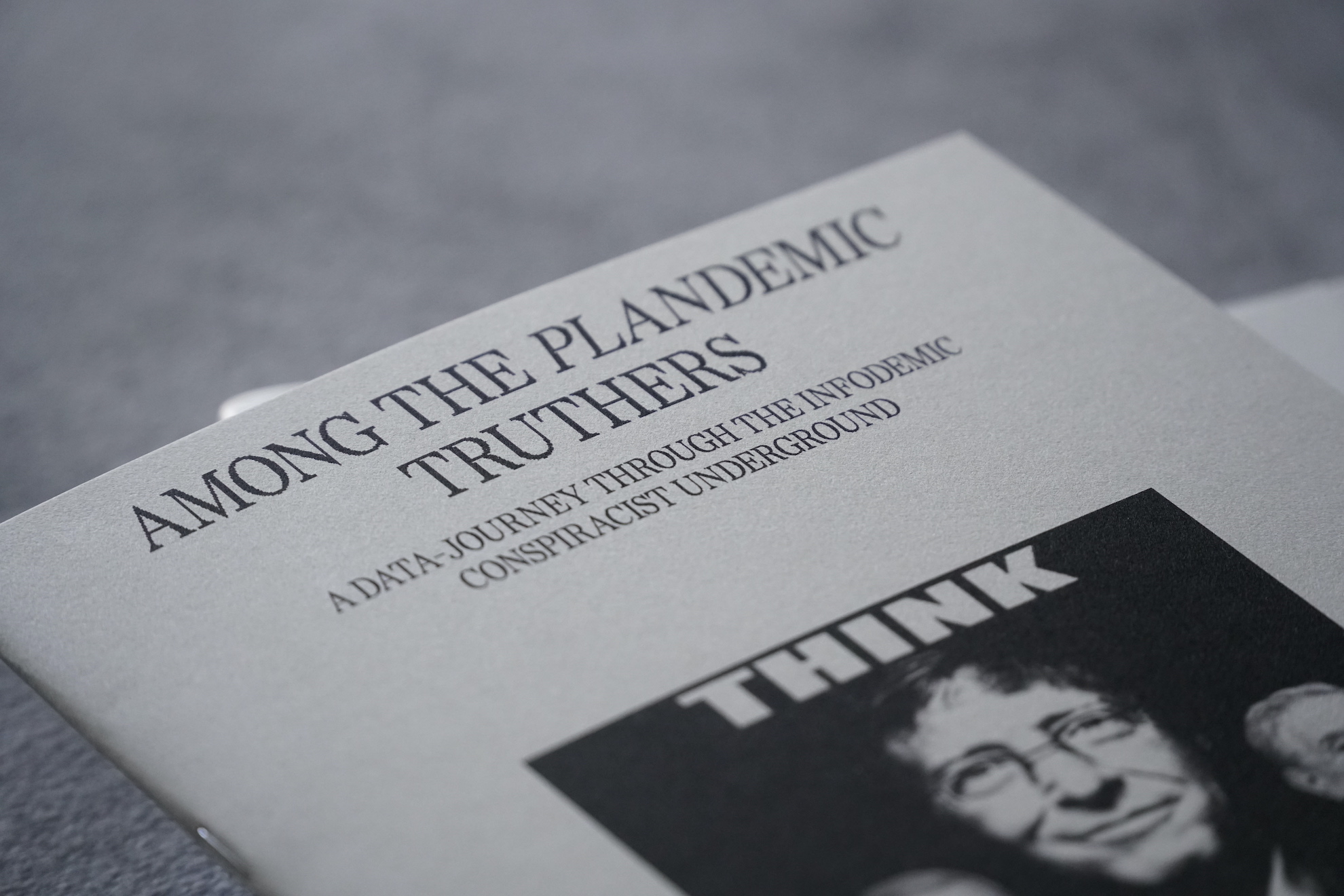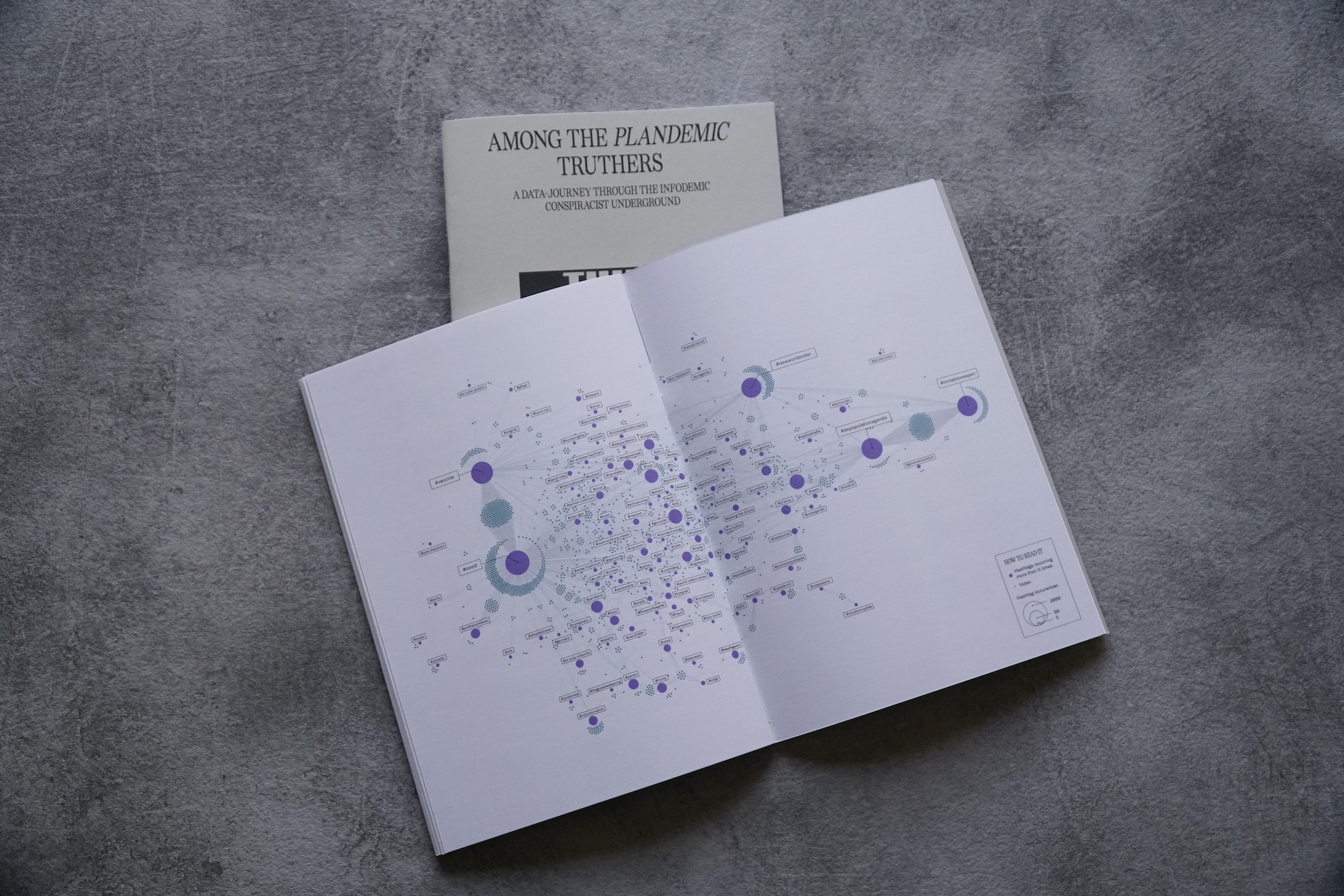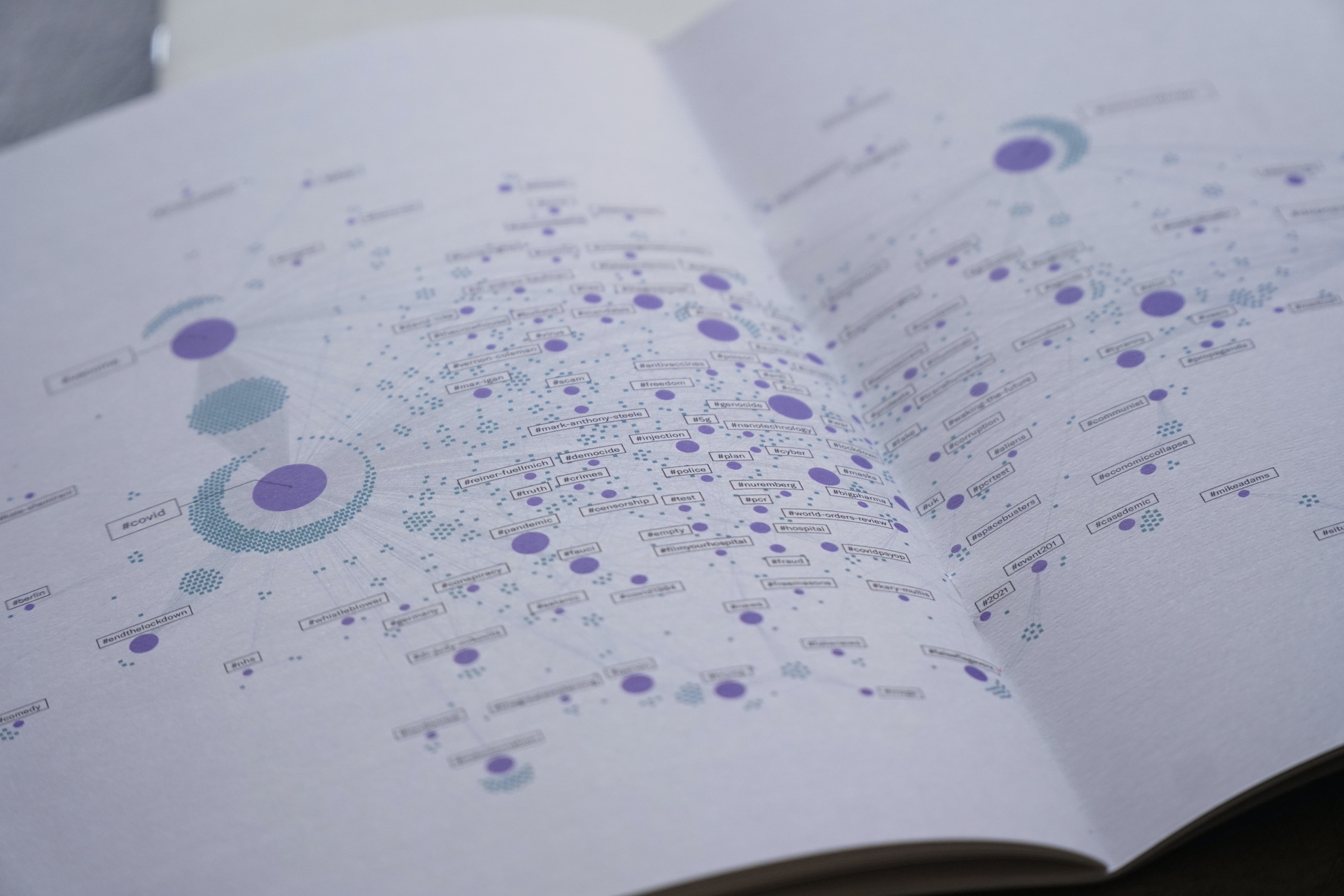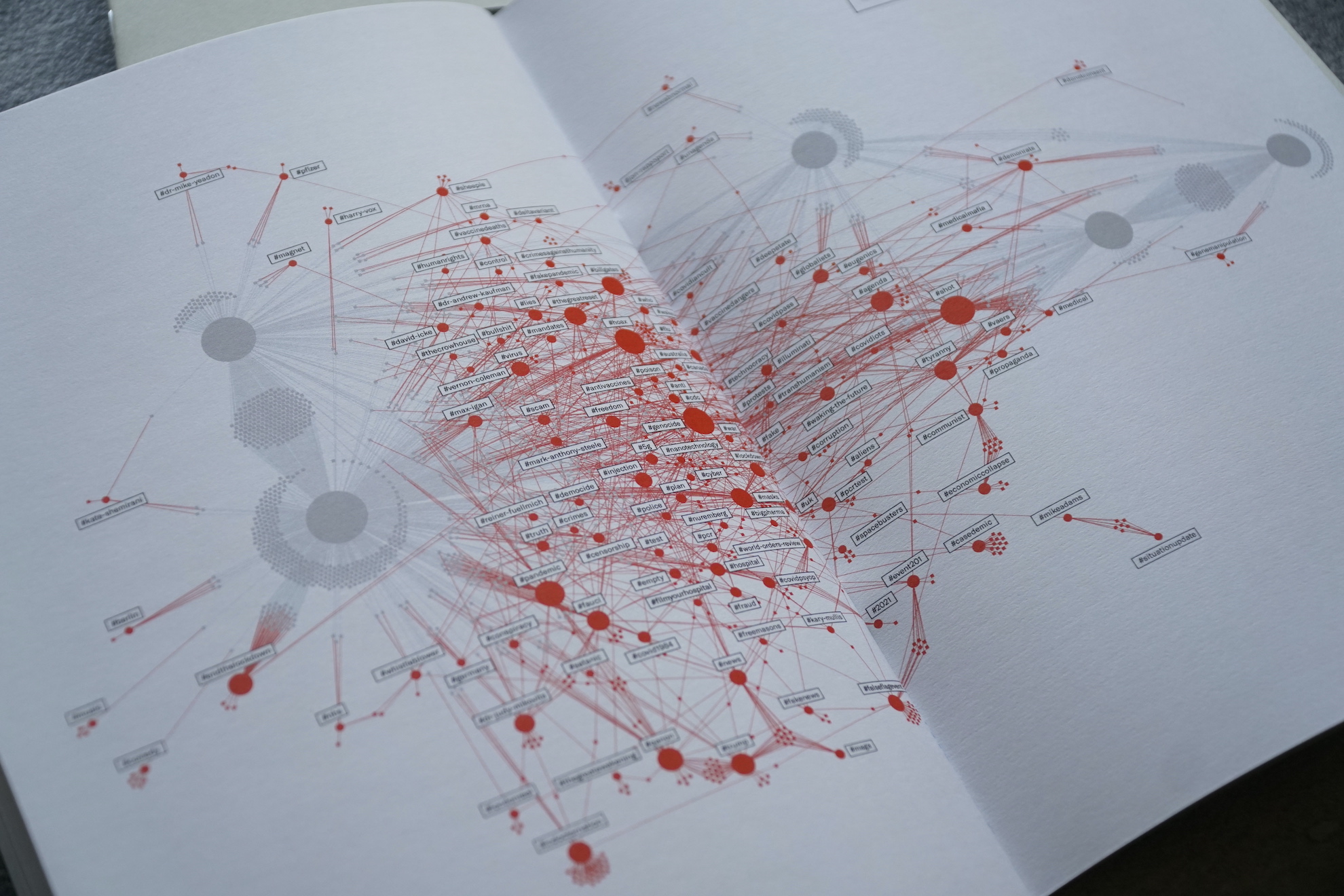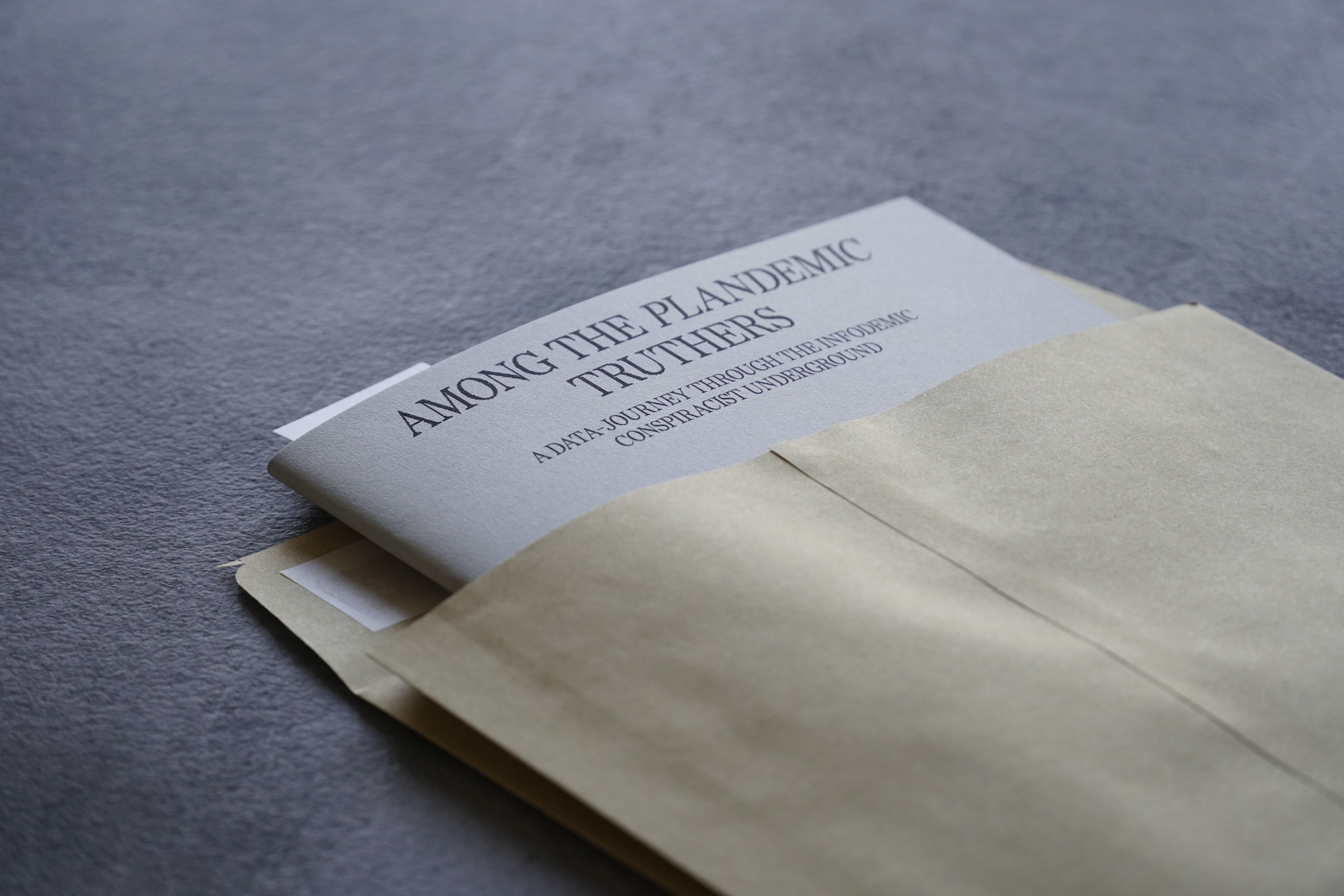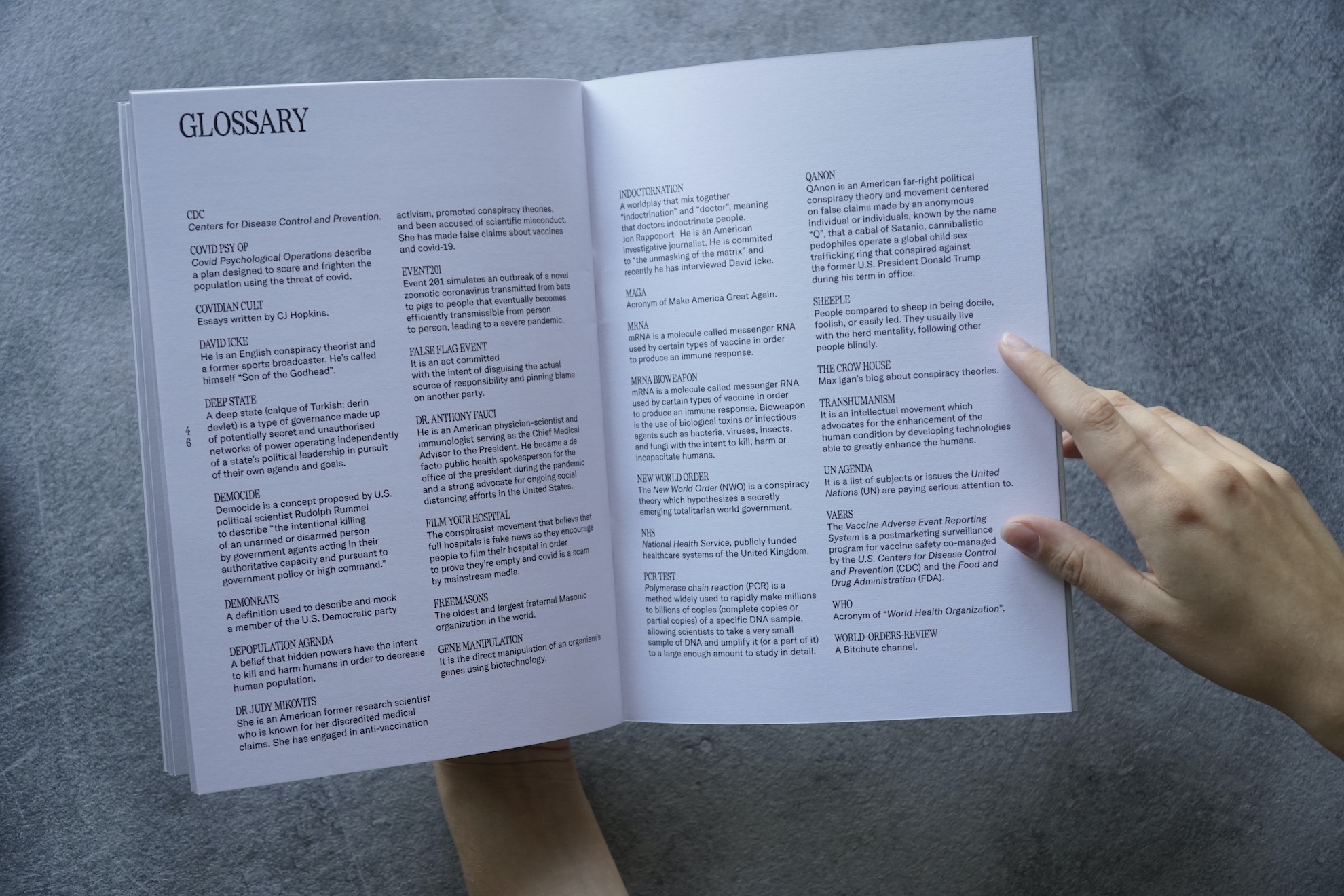.AMONG THE TRUTHERS
- Data analyst
- M. Casarotto, D. Chiappini, A. De Simone, E. Ghebaur, F. Gheli, H. Ma
- Among the plandemic truthers
During covid-19 breakout, the World Health Organization registered
the spreading of a new phenomenon which was later labelled
“infodemic”. It was defined as an excessive quantity of
information that encourages misinformation, disinformation, and
rumors during a health emergency. To take action against false or
possibly harmful misinformation, main social media websites
started to take down misleading content or ban the authors of
these posts. As a result, many users decided to flock to
alternative websites that promised them to be censor-free and real
hubs of free speech. Our study investigates how covid-19-related
content, from general disinformation to real conspiracy theories,
is communicated on these “dark platforms” that are less regulated
and moderated. The research focuses on two websites. The first one
is Gab, which resembles Twitter in its structure and allows users
to post images, videos and texts. The second platform is Bitchute,
a media sharing website where users can upload videos that
otherwise would be banned from traditional social networks such as
“Plandemic”, a conspiracy theory documentary that promotes
misinformation and has reached millions of views. The goal of our
study is to analyse the recurring patterns in how topics related
to covid-19 spread. We investigated how the different conspiracies
got tangled together on these hubs and how all of these contents
spread out to reach more audiences.
